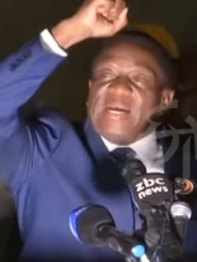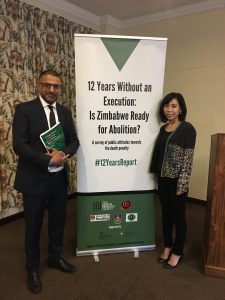Millions of Zimbabweans watched their new president Emmerson Mnangagwa deliver his inauguration speech on Sunday 26 August, and outline the plans for his ‘Second Republic’. Dr Heike Schmidt, Associate Professor of Modern African History, was watching closely to identify some of the problems with his proposals, and ponder just what hope there is for a truly democratic Zimbabwe under his rule.
As expected, the inauguration of Zimbabwe’s President Emmerson Mnangagwa was regulated by protocol.
Much attention was given, as always, to the military. Yet the pageantry and the speeches were an intriguing performance of power that sets the president and the party that has ruled the country since its independence in 1980, ZANU-PF, on a path that promises both continuity and change that will affect every Zimbabwean. Continue reading



